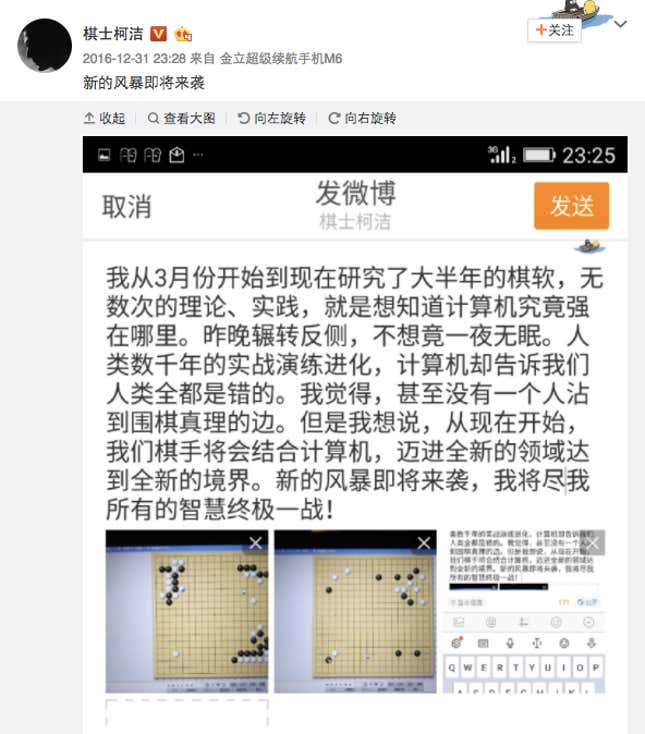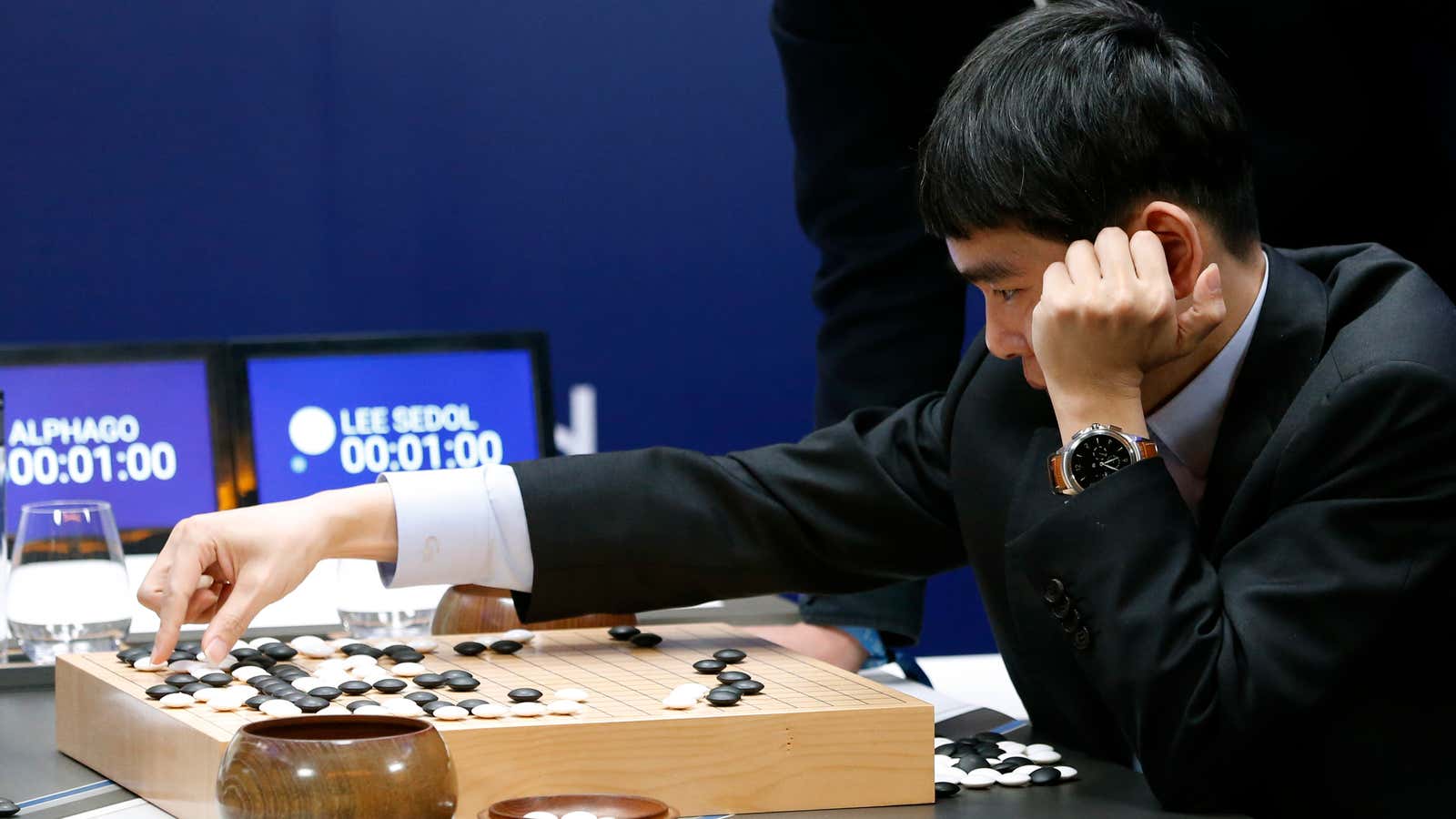When Google’s artificial intelligence program AlphaGo made history by taking down Korea’s Lee Sedol—one of the world’s best Go players—in a landslide 4-1 victory in March, Chinese player Ke Jie was skeptical. He famously wrote on Weibo the next day, “Even if AlphaGo can defeat Lee Sedol, it can’t beat me,” and has since agreed to take on the AI at an undecided time.
But now even Ke, the reigning top-ranked Go player, has acknowledged that human beings are no match for robots in the complex board game, after he lost three games to an AI that mysteriously popped up online in recent days.
The AI turned out to be AlphaGo in disguise.
On Jan. 4, after winning more than 50 games against several of the world’s best Go players, Ke included, a user registered with an ID of “Master” on two Chinese board game platforms came forward to identify itself as AlphaGo.
“I’m AlphaGo’s Doctor Huang,” the user “Master” wrote on foxwq.com, according to screenshots from Chinese media reports. Taiwanese developer Aja Huang is a member of Google’s DeepMind team behind the AI.
Deepmind founder Demis Hassabis, whose London-based AI startup was acquired by Google in 2014, later confirmed on Twitter that Master is a new version of AlphaGo under “unofficial testing.”
Since Dec. 29, Master has defeated a long list of top Go players including Korea’s Park Jung-hwan (world No. 3), Japan’s Iyama Yuta (No. 5) and Ke in fast-paced games. He won 51 games straight before his 52nd rival, Chen Yaoye, went offline, forcing the game to be recorded as a tie. By Jan. 4 when the test was completed, Master had racked up 60 wins, plus the one tie, and zero loss, according to numerous reports (link in Chinese).

Ke took to Weibo again ((link in Chinese, registration required) on Dec. 31, after his first two losses, writing:
“I have studied Go softwares for over half a year since March, learning theories and putting them into practices countless times. I only wondered why computers are better… Humans have evolved in games in thousands of years—but computers now tell us humans are all wrong. I think no one is even close to know the basics of Go.”
He added that Go players should now start to learn from computers to improve their skills.
Before Master claimed to be AlphaGo, there were unconfirmed reports by several Chinese media outlets, including the Western China Metropolis Daily (link in Chinese), that Master is an updated version of AlphaGo in a beta test, and that the two Chinese board game platforms had signed nondisclosure agreements with Google.
Even before Google confirmed the AI’s identity, there should have been no doubts that Master is not human. For one thing, just look at the unthinkable number of consecutive victories over top players in such a short period of time. As Chinese national Go team coach Yu Bin argued, only a robot could make a move almost every five seconds, in a fast-paced game that only requires each player to make at least three moves every 20 seconds.
AlphaGo’s March victory over Lee was the first powerful demonstration of how AI could buck conventional wisdom in a game that originated in China two or three millennia ago. Master’s—or AlphaGo’s—sweeping wins have now driven home the point more emphatically.
China’s Go world champion, Nie Weiping, said (link in Chinese) after he lost by 7.5 points to Master on Jan. 4, “Go is not as simple as we thought, there’s still huge room for we humans to explore. Either AlphaGo or Master, it’s sent by the ‘Go God’ to guide humans.”
